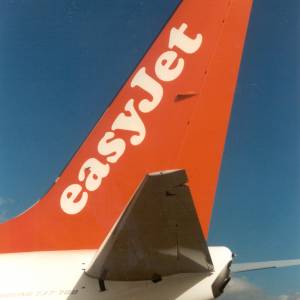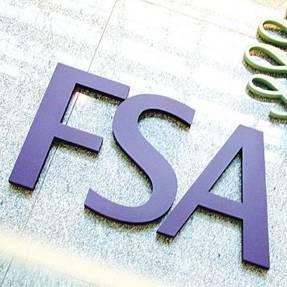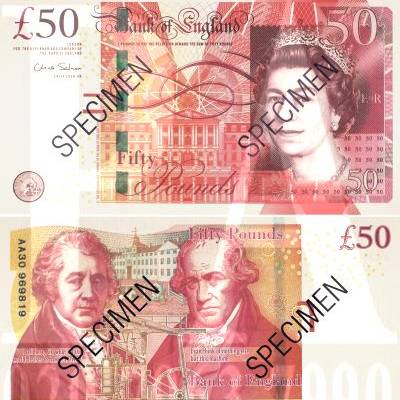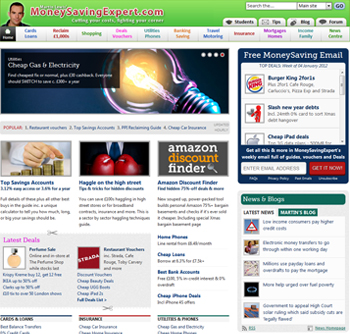 Whether gifting a few quid to a Stateside nephew, or sending a backpacking daughter emergency funds, transferring money overseas means double the currencies, complication and cost - banks will charge up to £25.
Whether gifting a few quid to a Stateside nephew, or sending a backpacking daughter emergency funds, transferring money overseas means double the currencies, complication and cost - banks will charge up to £25.
This is a step-by-step guide to the cheapest way to send or pay money abroad, both regular payments or one-offs, saving you serious cash.
In this guide
Best buys
Also see:
Cheap Travel Money, Travel Money Maximiser
What will it cost?
When moving money, costs fall into two simple categories: fees and the exchange rate. It's crucial to check both out. 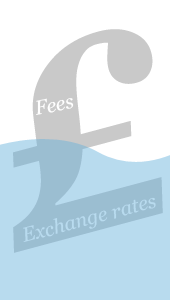
-
Fees. The obvious charge.
A multitude of fees, charges or commission can apply, both for the sender and the recipient. Many providers levy lots of small charges to disguise exactly how much it costs.
-
Exchange rates. The hidden charge.
Many companies claim to be 'commission free' then load the exchange rate so you get less buck for your pound. Worse still, it's often teeth-pullingly difficult to get hold of the exact rate and compare it, as some providers simply don't provide the data.
The best way to compare...
The minefield of complications actually boils down to a very simple question...
"How many Euros/Yen/Dollars will be received, after all charges?"
Sadly, sometimes it's hard to get an answer. Also, exchange rates change very regularly (possibly by the minute), so to compare providers properly do it all in one go.
To benchmark a decent rate, check the Travel Money Maximiser. If you're transferring a large amount, then at worst you should aim to equal the cheapest provider there.
To find the best deal, follow the steps below; each one lists who it's suitable for. Stop at the first method that suits you.
Step 1: Use the top credit or debit cards
For most people the easiest and cheapest system is to use one of the specialist credit or debit cards. These let you pay for things overseas at the best possible exchange rate with minimum fees. While designed to be used for spending, they can be manipulated to work as a method to give money overseas cheaply.
Who's it suitable for?
This works when you or another UK resident needs to spend money in shops or withdraw cash in another country. Typical examples include:
-
Sending emergency or regular cash provisions to a UK citizen travelling the world.
-
Paying overseas bills eg, for second home owners, provided companies you pay accept plastic, or you visit often enough to withdraw cash from ATMs.
You get the best possible exchange rate
 Most normal cards add a 3% 'load' on the exchange rate so £100 of foreign currency actually costs you £103. These don't, so you get the Visa / Mastercard wholesale rate, which is about as good as it gets; much cheaper than buying foreign currency. Plus unlike most cards, withdraw cash from an overseas ATM and they've either no or low fees.
Most normal cards add a 3% 'load' on the exchange rate so £100 of foreign currency actually costs you £103. These don't, so you get the Visa / Mastercard wholesale rate, which is about as good as it gets; much cheaper than buying foreign currency. Plus unlike most cards, withdraw cash from an overseas ATM and they've either no or low fees.
The person who's going should take the plastic and use it to spend on or withdraw cash. As it's a UK account, you can pay money off the balance as normal. ALWAYS set up a Direct Debit to pay it off in full each month, to avoid paying interest on any spending. You will pay a month's interest on credit card cash withdrawals, yet this is almost negligible compared to the benefits.
The best cards to use
Halifax Clarity Credit card.
The Clarity card from Halifax has no foreign exchange fee anywhere in the world, so you can get the best rate possible. Plus it doesn't charge for cash withdrawals, although you will be charged interest even if you repay in full.
The rate for cash withdrawals is a fairly low 12.9% APR (see official rate example) but this rate is representative which means two thirds of those that are accepted will get it, the rest will be charged up to 21.9%. This works out as around £1 per month for every £100 withdrawn.
Metro Bank load-free debit cards.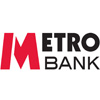
Small high street player Metro Bank charges no foreign exchange loading or cash withdrawal fees on the card that comes with its current account.
However, you have to go to one of its ten London branches to get one (it's opening more in future, but all in the south east of England).
For alternative options & detailed review of card differences & charges, read the Cheap Travel Money guide.
Step 2: Free bank account transfer services
A number of banks allow you to transfer money to linked banks overseas without a fee; usually it's simply the overseas version of the same banking group. Therefore if you and the person you want to send money to both open the accounts, you can cheaply move money between people.
Who's it suitable for?
This is best for regular movements of money to people who stay in one country. Typical examples include:
Regular cash to family members who live overseas.
Payments for services on homes abroad.
The top fee-free bank services
A number of banks offer this service, they all work in different ways, and most importantly let you transfer to different countries.
There is one major point of difference though... one allows you to send money to anyone who holds an account with the same bank overseas, while frustratingly the other group require both the UK and the foreign account to be in YOUR name.
Fees-free to anyone with a Citibank account 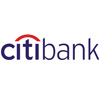
This fees free transfer service usually has a good exchange rate, adds no 'load' and is only marginally worse than the best plastic. In addition your money will usually arrive in the relevant account within five minutes. It works for 26 mainstream countries including the US, India, China, Germany and Australia (see a full list).
Set up a Citibank Foreign Currency Deposit account, which unlike some of its other accounts, has no monthly fee. As these aren't the market's top interest offerings (see Best Bank Accounts) it's worth grabbing one just for overseas payments and moving money into it from your normal account. As long as you select to not receive in-credit interest, there's no minimum salary requirement.
Then ask the recipient to open a Citibank account in their home country, though not all countries have fees-free banking as in the UK. It's also worth checking the exchange rate when converting anything except Euro to Dollar (and vice versa), as rates can creep down a little.
Fees-free to your foreign account
A number of banks also have relationships that allow you to send money without a fee at good exchange rates. However, both the UK account, and the one in the country you are sending to need to be in your name. This means it's useful if you have a second home abroad and need to pay bills, but much less so for sending cash to friends and family.
-
To Spain. A number of banks offer this service for Spain due to the number of ex pats there. Halifax, Bank of Scotland and Lloyds transfers to Lloyds Bank International SAU accounts.
To India. Although not completely fees-free, Indian citizens living in the UK with a UK Lloyds 'value added' (fee-paying) account can send money to an ICICI bank in India, however when the money is received in India, a 25 rupee fee will be applied (approx 30p).
-
USA, Hong Kong, and more. HSBC offers fees free transfers to 36 countries, but you need its Premier bank account (which means you need £50k savings or a £250k mortgage with HSBC, or £75k salary going into an HSBC account), so it's not worth it unless you make a lot of transfers.
Know any not here? If you know of another bank offering fees free transfers to a specific country, please let us know.
Don't miss out on updates to this guide Get MoneySavingExpert's free, spam-free weekly email full of guides & loopholes
Step 3: Use online money transfer services
A number of companies offer transfer payments over the internet, either through e-commerce systems or simply by moving your money into someone else's bank account, but the correct system depends on how much money you want to send.
Who's it suitable for?
This is generally suitable for non-urgent transfers of smaller amounts of money. Typical examples include:
-
Payments for goods received eg, on eBay.
-
Sending one-off money to a friend/family member overseas.
It is very important to be aware that no compensation scheme exists if these firms were to go bust - read full details in Am I protected?
There are a number of local firms designed specifically for international money transfers. You pay them in sterling, usually via internet transfer, which they convert and send to the receiving bank within two to four working days. You'll need to set up an account and have your address verified first, which can take a few days.
It's also worth noting all credit card companies and some debit cards charge you a cash withdrawal fee when using them to pay for foreign currency, usually it's a pound or two. There's a full list of which cards do this in the Travel Money Maximiser.
Post Office: Send up to £20,000 online. Fees-free, OK rate, arrives in up to 3 days

- Rates: OK - not as good as Travelex.
- Min transfer: £250
- Max transfer: £20,000
- FSA: Authorised (What does this mean?)
The Post Office* International Payments system allows you to transfer between £250 and £20,000 fees-free, and the money will arrive in one to three days. The rates aren't as good as holiday cash, but are still decent - though the process is a little fiddly.
The Post Office International Payments service is run by HiFX who are fully authorised by the FSA. This means that any money you send using the service is kept separate from company accounts so if they fall into difficulty, your money should be able to be returned to you. See Is my money protected? for more details.
PayPal: Instant transfers. Low fees, available in 18 currencies.
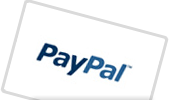
- Rates: Good, just below bureaux de change rates.
- Min transfer: No min
- Max transfer: £55,000
- FSA: Not UK regulated - EU regulated in Luxembourg. Opts in to Financial Ombudsman Scheme.
More commonly associated with online shopping, PayPal also offers a sending money overseas service. It'll charge you a 2.5% load fee to send the money as well as a 'cross-border transaction' fee for the person receiving the funds.
You and the recipient both need PayPal accounts which are free to open, then you can transfer money into it from a bank account or credit card. Funds will be instantly credited to the receiver's PayPal account but will take three to nine days to withdraw to a bank account.
As well as the 2.5% fee for sending cash, the recipient will pay up to 4.9% plus 20p, depending on the country it arrives in - for a full list of fees see PayPal's fees section in the User Agreement.
PayPal is regulated in Luxembourg meaning it is not on the FSA register. However, it is a voluntary member of the FOS so you do have the right to complain to them if you're not satisfied. See below for more details.
IMPORTANT! NO compensation scheme if firm goes bust
This is crucial to understand - if you use an online transfer company and it goes bust while it has your money, there's no guarantee you will get it back. The regulation of these companies has become tighter in the past few years, but the risk of losing cash still remains.
- 'Authorised' - your money is kept separate. A larger firm, trading over €3 million a month must be authorised by the Financial Services Authority (FSA). Daily, at the close of business these firms must keep your money separate from the firms accounts (known as safeguarding), protecting it so it should be paid back to you if the firm gets into difficulty.
- 'Registered' - no safeguards for your cash. 'Small Payment Institutions' can choose just to be registered, which means there's no safeguarding process and if something goes wrong with the firm, your money is not protected at all.
If a firm loses your money (but it hasn't actually gone bust), then you do have the right to complain to the Financial Ombudsman Service (FOS), if the company can't sort it out for you. It will then investigate on your behalf and if the company's in the wrong you should get the money back. See Your Financial Rights for more details.
To check how a firm is regulated (ie, are they authorised or just registered), search their name on the FSA register. For more information on your protection (or lack of it), this Sending Money Safely leaflet from moneyadvice.org is useful.
If you're nervous, an alternative is to use the similar, but more expensive services offered by a bank branch. HSBC tends to be the cheapest of those so check the relative price differences to see how much more it'll cost.
Don't miss out on updates to this guide Get MoneySavingExpert's free, spam-free weekly email full of guides & loopholes
Step 4: Need to send cash instantly?
The above methods will all take a few days for the money to hit the destination. Yet if speed is paramount, a few companies offer instant cash transfers to thousands of locations anywhere in the world. However, they ain't necessarily cheap...
Who's it suitable for?
Those who need to move cash at speed, or where the recipient doesn't have a bank account in that country. Typical examples include:
-
Emergency funds for a friend/family overseas. If a backpacking son or daughter, or a friend who's had all their cards nicked needs cash.
It is very important to be aware that no compensation scheme exists if these firms were to go bust - read full details in Am I protected?
However do remember it's far better, if possible, to set up the card system in step 1.
How does it work?
You either go into a branch (there are many in newsagents, Post Offices and banks) or pay the money online. The recipient then picks it up at an agency at the other end once it's done (they don't need to be there that moment). They can either present ID or if that's a problem, a code can be used to legitimise the transfer.
The cheapest instant transfers
The word cheapest should only be used advisedly here, this isn't a cheap service, and should only be done if necessary. It's extremely expensive, especially for small amounts, though the recipient won't normally need to pay a fee.
The most important thing to do in this case, is check that there's an agent/branch where the recipient can pick up the cash. The two big operators are Moneygram and the more famous Western Union.
If you've the luxury of a choice between the two, Moneygram's usually the cheaper, starting at £12 to send £100, up to £49 to send £1,000.
However there are firms which provide transfers from the UK to specific countries, which can often be found in areas where there's a large community of those of that ethnic origin.
Sending larger amounts (£5,000+)
When the amount you wish to transfer jumps to the 'serious' level, then the only players able to give a good rate are specialised Foreign Exchange (FX) brokers. There are a lot of companies, and the same lack of protection applies as above - so be very diligent in checking as there could be massive amounts at risk
Who's it suitable for?
This method only really adds up for sending a few thousand pounds at least or making slightly smaller, but regular payments. It's possible to use this method for smaller amounts too, but then it's costlier. Typical examples include:
-
Making large purchases abroad eg, house, car.
-
Paying off overseas mortgages - you can arrange monthly transfers.
-
If you're moving abroad and want to convert all your cash.
It is very important to be aware that no compensation scheme exists if these firms were to go bust - read full details in Am I protected?
How to do it?
 When transferring larger sums, it's important to remember that even small differentials in exchange rates can make an enormous difference.
When transferring larger sums, it's important to remember that even small differentials in exchange rates can make an enormous difference.
Think about it... a 1% rate improvement on £100,000 is a £1,000 gain. So finessing the very best rate takes on even more significance.
Benchmark the rate.
Quickly go to the Travel Money Maximiser to check out the best rates there. That finds the top rates for getting cash when going on holiday, so you should be aiming to beat its best, after all fees.
Ask your bank for a quote.
It's rare your bank will actually be the best buy. However, it's a very useful secondary benchmark and some have special facilities for existing customers, so it could come up trumps.
Use a specialist currency broker.
These are companies that buy and sell vast sums of foreign currency which allows them to offer excellent exchange rates because, even if they only make a small percentage profit on every pound, that soon adds up when you're dealing in hundreds of millions of pounds.
There is no hard and fast rule to which currency broker is best, so get quotes from all of them to find the the best rate for your currency. The regularly quoted big brokers include such players as HIFX*, Currencies Direct* and Moneycorp, so they're the obvious places to start - though of course they are still no more protected than others.
Typically they offer within 1% of the 'interbank rate', whereas your bank will normally be up to 3% worse than that, equating to £3,000 for a £100,000 transfer. In addition, most don't charge fees to send money, and the broker pays for any receiving fees, so all you pay is the margin they take via the exchange rate.
The rates for these change constantly, often by the minute, so to find out which gives the best rate to your chosen country you need to get quotes as close together as possible. And do remember, the golden question to ask is "how many Euros/Dollars/Yen will you give me for my £x,xxx after all fees and charges?"
Unfortunately, the less you transfer, the worse the rates available get, meaning this is only worth it for high value money switching.
Warning! There's no compensation scheme
Unlike banks, currency exchange businesses are not covered by the FSCS, so there's always the risk, if something goes wrong, you won't be guaranteed full compensation.
However, bigger businesses, trading over 3 million euros a month, must be authorised by the FSA. This means your money is kept separate from company accounts, a process known as safeguarding. If something was to go wrong with the company, your money should be paid back to you.
Smaller firms can choose to be registered which means there's no safeguarding process as above. If something goes wrong, your money is not protected at all.
Both allow complaint referrals to the FOS, should a company not deal with it appropriately. The FOS will then investigate on your behalf.
Knowing this, these companies work hard to prove their stability, and a little research should bear that out. HiFX, for example, stores your money in a Barclays account while it's in transit before it hits your account overseas, to ensure it is safe. See a full checklist of questions to ask.
Please feedback on your experiences with FX brokers.









